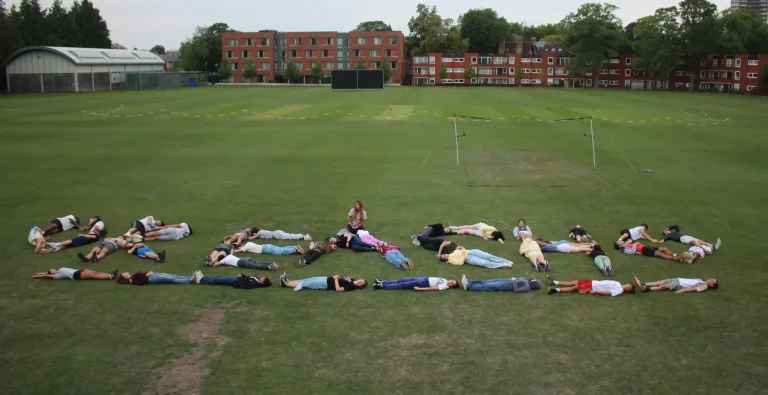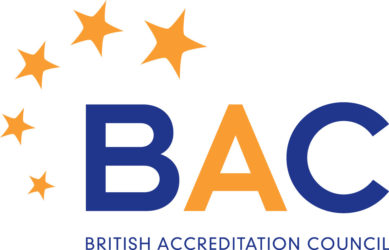Whether you’re revising for an exam, planning an assignment or writing an essay, you’re going to want to use the time you have productively. Perhaps you wish you had more time, or that you work wasn’t so complicated. The good news is you can buy yourself time and get a better sense of how to manage your workload by employing some of these ‘tricks of the trade’…
Reach Cambridge has much to teach in the way of study skills (the practice of which features heavily in our Spring program, for example), but here are some of our top tips so that you can start employing them today!

 As such, you could divide your list into four, like this:
As such, you could divide your list into four, like this:


 Studies have shown that the average brain can concentrate for 90 minutes at most. There’s no point trying to hammer your brain to keep working past that; it’s like trying to cook with diminishing heat. Yes, you might still get there, but it’s going to take longer and longer. Instead, set a timer for yourself. Work for 45, 60 or even 90 minutes, pure focus, no distractions. Then, take a 15 minute break to refresh your brain. (And no, a different type of revision is not a break!) Go for a walk, drink a cup of tea, chat with some friends, eat some snacks. When you return, your brain will be rebooted and ready to access its full potential again.
Studies have shown that the average brain can concentrate for 90 minutes at most. There’s no point trying to hammer your brain to keep working past that; it’s like trying to cook with diminishing heat. Yes, you might still get there, but it’s going to take longer and longer. Instead, set a timer for yourself. Work for 45, 60 or even 90 minutes, pure focus, no distractions. Then, take a 15 minute break to refresh your brain. (And no, a different type of revision is not a break!) Go for a walk, drink a cup of tea, chat with some friends, eat some snacks. When you return, your brain will be rebooted and ready to access its full potential again.

To Do Lists
To work smart is to make the most out of the time you have at your disposal. Working smartly means working efficiently towards a desired objective. A full brain finds it difficult to process information. That’s one reason why making lists can be so important for anyone wanting to work smart. You might even want a diary or notebook especially for your thoughts, so you can keep them all together. However you decide to organise it, you should find it a lot easier to keep focused if you know that you can earmark that bothersome job that keeps popping into your head for later.
Jafar has a long To Do list
Prioritise
Once you have your list together, categorise it into batches. You may have a list for your Geography revision, and another list for your English essay, and yet another list for the school admin you need to get done. Things will feel a lot clearer once those tasks are divided up. Then, guess what? Categorise again, this time in order of priority. How do we work out priorities? One way is by urgency; which deadlines are all-too-swiftly approaching? However, you might urgently need to finish a diagram, and in the process miss out that it’s really important to buy a new textbook. We can’t wait until the important becomes urgent!
Don’t worry, it’s not as confusing as it sounds!
- urgent and important
- urgent but not important
- important but not urgent
- neither urgent nor important

Make it beautiful by all means, but it only works if you work it…
Theme Your Time
It’s also been said that we are more productive when we ‘theme’ our time. You might find this especially useful during exam revision. For instance, you can decide that 5-6pm on Thursday is your Languages revision time; during that time, you will only do Languages revision. While you’re working, your brain might be prodding you about some maths questions you haven’t done yet. You can then ask yourself: is that urgent? If yes, write a note to yourself about where you leave off with your Languages work. That way, you’ll find it much easier to get stuck in again when you pick up where you left off. If the maths is not urgent, simply add the task to your running To-Do list, and carry on with your Languages theme. Keeping focused like this will help you get more done in the time allowed, and give your brain more space to concentrate. If time-theming doesn’t seem like it will suit you, then at least consider focusing your time by regularly setting objectives. What does this teacher/ exam question/ article want from you? What do you need to persuade the person looking at your work? What possible criticisms could you face and how can you counter these? Asking yourself critical questions like this will boost your self-awareness and help you maintain a clear focus on your work, eliminating the possibility of wasting time pursuing tangents that bear no real relevance to your work.
Wisdom of The Rock
Focus
You may think you’re really good at multi-tasking, but studies have shown that the brain cannot work equally well when it’s split between different tasks at the same time. Likewise, we all know from experience that it can be very hard to get back into flow once you’re interrupted. This is especially pertinent in our technological age, with phones buzzing, videos playing and emails pinging! Our advice? Turn off your email notifications except for specific periods in the day, when you will be able to devote your full concentration to them. The same goes for your social media; we know it’s hard, especially when you want to keep up with Reach on Facebook, Instagram and Twitter…. But we’ll still be there when you check on us later, promise!Take breaks!

Regular breaks help you stay energised
Take Care of Yourself
It might feel like your work is the most important thing in the world – and no one at Reach would deny the belief that ambitions are realised with hard work and dedication. That being said, no one can pour from an empty well; i.e. your work can’t be done if you’re not well and energised enough to do it. That’s why self-care is so important not to neglect when you’re reaching for your dreams. Rest well, get enough sleep, spend time in fresh air, eat nourishing food, exercise. You are worthy of all that you strive for, and that includes your body too!
Baths are good self-care!






